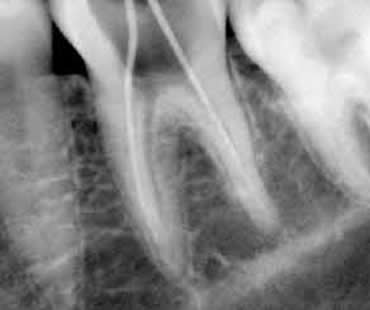
by Dr. Adkins | Oct 7, 2017 | Blog, Dental Topics, Uncategorized
While no one looks forward to root canal treatment, the procedure can be critical for saving a compromised tooth. To ensure proper healing, your dentist will provide you with aftercare instructions. Along with those recommendations, there are several tips you can follow after your root canal treatment to speed up your recovery, promote healing, and avoid potential complications.
- Avoid chewing on the treated side of your mouth until all of the numbness from the anesthetic has completely worn off. Stay away from crunchy, hard, or chewy foods for several days.
- To keep swelling at a minimum, apply an ice pack or bag of frozen peas on the treated area for thirty minutes. Repeat this process hourly for about fifteen minutes each time until swelling subsides.
- Keep your head elevated while sleeping for several days after treatment.
- Gently rinse your mouth with warm salt water regularly for the first few days after root canal treatment.
- Do not smoke for a minimum of 24 hours post-procedure, and refrain from tobacco usage as much as possible until the treated area is fully healed.
- Refrain from strenuous physical activity or exercise for 48 hours after your root canal procedure.
- Relieve pain with anti-inflammatory medication, either over-the-counter ibuprofen or prescription as determined by your dentist
These tips, along with the aftercare instructions provided by your dental professional, should help ensure the best chance of a successful and quick recovery. However, should you experience excessive swelling, pain, the appearance of a rash or hives, or a return of original symptoms, you should contact your dentist or oral surgeon immediately.
If you need a dentist in McDonough, contact us today

by Dr. Adkins | Aug 7, 2017 | Blog, Dental Topics, Uncategorized
Even though regular checkups and proper dental hygiene greatly decrease the need for root canal treatment, the fact remains that it is one of the most common procedures performed by dentists today.
What are some of the most common reasons you might need this dental solution?
Decay
The primary cause for root canal procedures is decay that has entered the tooth pulp chamber and progressed to the point of causing infection or abscesses. Pain and tooth sensitivity often accompanies severe decay. Root canal treatment is the best way to avoid tooth extraction and restore oral health.
Trauma
If a tooth endures strong force such as from a sports injury, car accident or fall, the trauma can damage the tooth so badly that root canal treatment is needed. Even if trauma isn’t completely evident at first, a severed nerve to the tooth can cause it to die over time.
Genetics
Traits of teeth like their strength are passed along through genes. Some people inherit soft teeth that are more prone to decay, making it difficult to avoid decay even with diligent oral hygiene.
>h3>Tooth fracture>/h3>
A tooth can be fractured through chewing hard foods or ice, teeth grinding or clenching, or habits like nail biting. Even hairline fractures may allow bacteria to enter the tooth’s pulp and cause infections. Once the bacteria takes hold, root canal treatment may become necessary.
Deep cavity
Deep cavities within teeth can allow infections to thrive, eventually causing the tooth to become inflamed or die. A deep cavity isn’t necessarily painful, so patients may not even realize they have an infection. Regular dental checkups help catch cavities early, before they are able to become so deep and serious.
Previous dental work
Extensive or repeated dental work can cause trauma to teeth nerves and associated inflammation, making root canal therapy an important solution.
Pain
A toothache or sensitivity are the most obvious causes for root canal treatment. The pain can become severe and cause related headaches and earaches, abscesses, swelling or other problems. An emergency root canal procedure might be necessary to save the tooth and end the pain.
If you live in the McDonough area, contact us today




 770-957-5214
770-957-5214  E-Mail Us
E-Mail Us 
